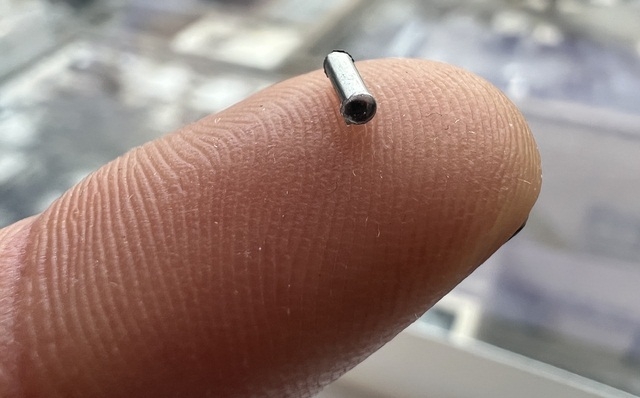The result, published in Advanced Science, found in murine models, was tumour reduction at a four-fold lower dosage than traditional systemic immunotherapy treatment….reports Asian Lite News
Researchers have found a way to tame pancreatic cancer – one of the most aggressive and difficult to treat cancers – by delivering immunotherapy directly into the tumour with a device that is smaller than a grain of rice.
The team from Houston Methodist Research Institute in the U.S. used an implantable nanofluidic device they invented to deliver CD40 monoclonal antibodies (mAb), a promising immunotherapeutic agent, at a sustained low-dose via the nanofluidic drug-eluting seed (NDES).
The NDES device consists of a stainless-steel drug reservoir containing nanochannels, thus creating a membrane that allows for sustained diffusion when the drug is released.
The result, published in Advanced Science, found in murine models, was tumour reduction at a four-fold lower dosage than traditional systemic immunotherapy treatment.
“One of the most exciting findings was that even though the NDES device was only inserted in one of two tumours in the same animal model, we noted shrinkage in the tumour without the device,” said Corrine Ying Xuan Chua, Assistant Professor of nanomedicine at Houston Methodist Academic Institute.
“This means that local treatment with immunotherapy was able to activate the immune response to target other tumours. In fact, one animal model remained tumour-free for the 100-days of continued observation.”
Pancreatic ductal adenocarcinoma is frequently diagnosed at advanced stages. In fact, about 85 per cent of patients already have metastatic disease at diagnosis.
Immunotherapy holds promise in treating cancers that previously did not have good treatment options. However, because immunotherapy is delivered throughout the entire body, it causes many side effects that are sometimes long-lasting, if not life-long.
By focusing the delivery directly into the tumour, the body is protected from being exposed to toxic drugs and fewer side effects, essentially allowing patients undergoing treatment to have a better quality of life.
“Our goal is to transform the way cancer is treated. We see this device as a viable approach to penetrating the pancreatic tumour in a minimally invasive and effective manner, allowing for a more focused therapy using less medication,” said Alessandro Grattoni, chair of the Department of Nanomedicine at Houston Methodist Research Institute.









